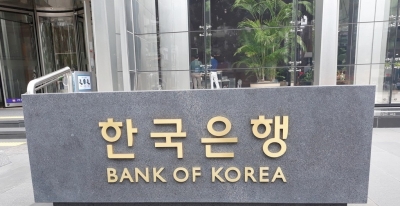Consumer sentiment hits 8-year high in South Korea
By IANS | Updated: November 25, 2025 11:30 IST2025-11-25T11:26:27+5:302025-11-25T11:30:28+5:30
Seoul, Nov 25 South Korea's consumer sentiment rose to an eight-year high in November, buoyed by the country's ...

Consumer sentiment hits 8-year high in South Korea
Seoul, Nov 25 South Korea's consumer sentiment rose to an eight-year high in November, buoyed by the country's tariff agreement with the United States and stronger-than-expected quarterly economic growth, the central bank said on Tuesday.
The composite consumer sentiment index (CCSI) climbed to 112.4 this month, up 2.6 points from October, according to a survey by the Bank of Korea (BOK), reports Yonhap news agency.
It marks the highest reading since November 2017 and the first increase in three months.
The index had risen for five consecutive months through August on the back of solid exports and optimism over the government's supplementary budget. It then declined over the following two months as concerns grew over a potential export slowdown caused by the U.S. tariff scheme and a slump in the construction sector.
A reading above 100 indicates that optimists outnumber pessimists, while a figure below 100 signals the opposite.
"The increase was mainly attributable to the tariff agreement with the U.S. and the third-quarter gross domestic product growth exceeding expectations," a BOK official said.
After months-long negotiations over the Donald Trump administration's aggressive tariff policies, Seoul and Washington finalized a deal and released a joint fact sheet earlier this month outlining South Korea's US$350 billion investment plans in the U.S., in exchange for a reduction of U.S. tariffs from 25 per cent to 15 per cent.
In the July-September period, real gross domestic product (GDP), a key gauge of economic growth, rose 1.2 per cent from the previous quarter, marking the fastest quarterly expansion since the first quarter of 2024, according to the BOK data.
It also beat the BOK's expectation of a 1.1 per cent gain, said the report.
Disclaimer: This post has been auto-published from an agency feed without any modifications to the text and has not been reviewed by an editor
Open in app